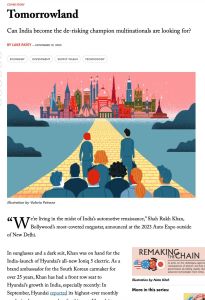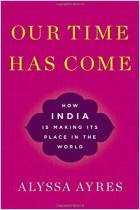Join getAbstract to access the summary!

Join getAbstract to access the summary!
Luke Patey
Tomorrowland
Can India become the de-risking champion multinationals are looking for?
The Wire China, 2023
What's inside?
India’s economy is becoming a global powerhouse.
Recommendation
Experts forecast that, by 2030, India’s GDP will reach $7 trillion, overtaking Japan as the globe’s third largest economic engine. Multinationals currently view India though two distinct lenses: The first as a growth portal for commerce with a surging middle class, and the second as a strategic supply chain conduit. Journalist Luke Patey explores the nation’s ascent as a power player in the global economy in this informative overview. Investors, executives and entrepreneurs will find this a useful analysis of India’s current economic status and likely future trajectory.
Summary
About the Author
Luke Patey is a senior researcher at the Danish Institute for International Studies and lead senior research fellow at Oxford University’s Institute for Energy Studies.






















Comment on this summary